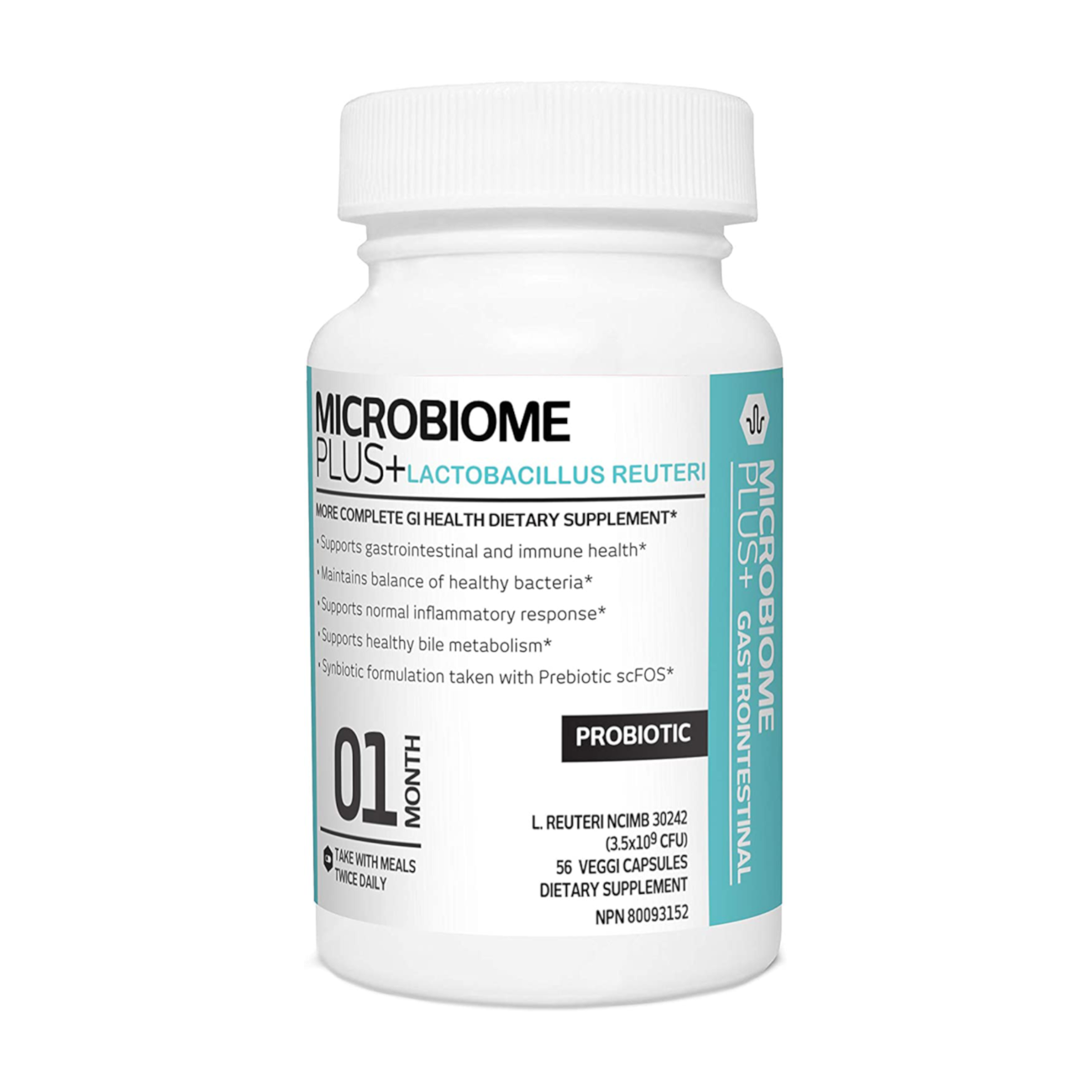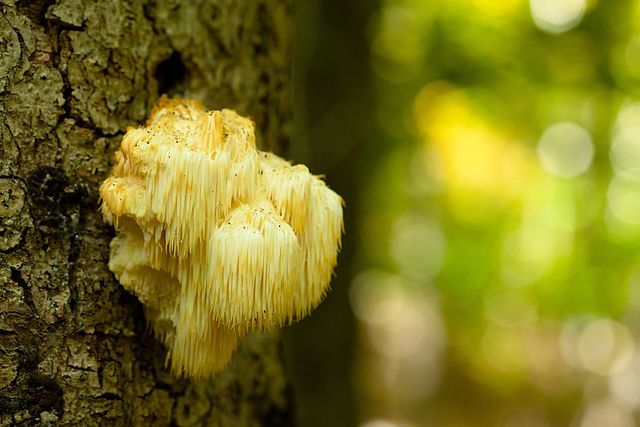Lion’s mane, also known as Yamabushitake, is the king of medicinal mushroom nootropics. It’s also an adaptogen, purported to boost cognition, focus, energy levels, and gut and immune health. Yet, there’s a lot of buzz about lion’s mane that will leave you in the dark as to how to supplement. This step-by-step guide covers the complete scientific evidence on how to take lion’s mane to actually get results.
Disclaimer: This post is for informational purposes only. Please consult your doctor before taking supplements to avoid any potential disease and drug interactions.
1) Take Daily + Dose Right
The single most important factor in taking Lion’s mane (Hericium erinaceus) is consistency. The second one is dosage. If you’re not taking this mushroom on a regular basis or at a high enough dosage, you are likely to miss out on its benefits.
Many clinical studies back up the importance of long-term supplementation with an evidence-based dosage. Although we need more clinical studies to determine optimal dosage, the existing studies can give us a good idea of what’s likely to work.
However, if you do a quick “lion’s mane dosage” Google search, you won’t find most of these studies. The typical blog post or guide will cite one or two human studies, at best.
That’s why we’ve decided to find and sum up the complete, up-to-date scientific research. While we’re at it, we’ll also try to answer another burning question: how long does lion’s mane take to work?
Let’s dive in…
Lion’s Mane Dosage & Benefits
- The typical lion’s mane serving is 1000 mg, taken 2-3 times per day for at least 4 weeks (2000-3000 mg/day)
- Some studies have used a higher dosage, but more clinical data on the safety of high doses is needed
- Lion’s mane supplements have been used safely in clinical trials for up to one year
The first published double-blind placebo-controlled study used 1,000 mg of lion's mane (96% fruiting body dry powder) thrice daily over 16 weeks (3,000 mg/day). This regime improved cognitive function in thirty 50- to 80-year-old Japanese men and women with mild cognitive impairment (Mori et al., 2009).
It likely takes a couple of months of supplementation to notice results. In the above study, cognitive scores started improving after 8 weeks.
Also, you can’t expect lion’s mane to continue working on your cognition once you stop taking it. This might be especially true if you have poor cognitive function. In the mentioned study, participants started experiencing cognitive worsening again 4 weeks after they stopped supplementing with lion’s mane.
In another randomized, double-blind placebo-controlled study, cookies with lion’s mane reduced anxiety, depression, and fatigue in 30 menopausal women. Each cookie contained 500 mg of the fruiting body. The participants ate 4 cookies at any time during the day (2000 mg/day) for 4 weeks (Nagano et al., 2010).
In a follow-up study, lion’s mane supplements improved short-term memory and cognitive function in 31 healthy, middle-aged people over 12 weeks. They upped the dosage to 4 supplements per day, each containing 800 mg of the fruiting body (total daily dose of 3200 mg/day) (Saitsu et al., 2019).
In a Japanese pilot study of 8 undergrads, lion’s mane tablets (1950 mg/tablet fruiting body extract; 0.5% hericenones, 6% amyloban) seemed to improve sleep quality, anxiety, and wellbeing after 4 weeks. They used a high dose of 6 tablets/day (11,700 mg/day), split up into 2 or 3 takings with food (Okamura et al., 2015).
A different lion’s mane extract (1200 mg/capsule; 80% mycelia and 20% fruiting body) decreased depression, anxiety, and sleep problems in an Italian study of 77 overweight or obese people. It was dosed at 3 capsules/day for 8 weeks (3600 mg/day) (Vigna et al., 2019).
Finally, a recent study used lion’s mane mycelium capsules (350 mg/capsule; 5 mg/g erinacine A). Three capsules per day (1050 mg/day) improved cognitive scores in patients with mild Alzheimer’s Disease gradually over one year (49 weeks). Meanwhile, the placebo group experienced cognitive decline 25 weeks into the study (Li et al., 2020).
This was also the longest lion’s mane study to date, showing that this mushroom is likely safe to use over long periods of time in people who need cognitive support.
Fruiting Body vs. Mycelia
Many lion’s mane supplements are available. If you want to see results, it’s important to choose a high-quality product. Lion’s mane supplements can widely differ in their ingredients, the part of the mushroom used, purity, and extraction methods.
We recommend My Smart Habit’s lion’s mane supplement. In line with the majority of published clinical trials, it contains 1000 mg of organic lion’s mane fruiting body extract per serving (2 capsules). It’s standardized to at least 25% beta-glucans (immune support) and less than 5% of starch. Higher amounts of starch usually point to cheap, vegetable-based fillers.
2) Sync Your Biorhythm by Supplementing throughout the Day
- It’s best to take lion’s mane throughout the day, spacing out your total daily dose into 2-3 servings from morning to afternoon/evening
- Supplementing throughout the day may help lion’s mane achieve its balancing effects on the circadian rhythm, energizing you in the morning and helping you wind down at night
Since it’s both an energy booster and a sleep aid, there are no known cons to taking lion’s mane at any time in the day. In fact, studies reveal that maintaining a steady dose of lion’s mane throughout the day helps this adaptogenic mushroom achieve its mind-body balancing effects (Okamura et al., 2015).
Indeed, a pilot study in stressed undergrads who stay up late at night revealed that lion’s mane might help sync the circadian rhythm. Plus, it decreased wakefulness in mice at the end of the day (Okamura et al., 2015; Furuta et al., 2016).
Lion’s mane may enhance nerve growth and regeneration, according to animal studies and a small human study. Our brain normally prioritizes memory consolidation and repair during sleep (Sei et al., 2000; Samberkar et al., 2015; He et al., 2017; Park et al., 2002; Wong et al., 2012; Vigna et al., 2019).
So, taking lion’s mane a couple of hours before going to bed may help you slowly start to relax and wind down. And, it might be a smart way to boost your brain’s physiological nighttime healing.
That said, everyone responds differently. If you feel that lion’s mane gives you a strong cognitive boost and makes you more alert, you might want to avoid taking it in the evening. Instead, take lion’s mane in the morning and afternoon to maintain mental clarity and stamina.
3) Take with Meals, Skip the Coffee
- Taking lion’s mane with meals helps absorb the active compounds, boost microbiome health, and prevent gut discomfort
- There are no known benefits and several risks to taking lion’s mane with coffee. Add lion’s mane to green tea or matcha instead.
Medicinal mushrooms are traditionally prepared in food. Research confirms that taking mushroom supplements like lion’s mane with meals is a good idea.
Lion’s mane contains beta-glucans, which act as prebiotics to feed your good gut bacteria. All prebiotics work best when taken alongside light, fiber-rich meals.
In one study, beta-glucans from lion’s mane improved the gut microbiome and increased anti-inflammatory compounds (propionate, butyrate, and branched SCFAs) in the colon samples of elderly people (Mitsou et al., 2020).
Also, chemicals in lion’s mane that support brain health (hericenones and erinacines) are small, fatty molecules. That means they’re better absorbed with food. Meals stimulate the release of bile acids, which help transfer active compounds into the bloodstream (Chong et al., 2019).
What about adding lion’s mane to your coffee?
In addition to the weird flavor combination, there are no proven benefits and several risks.
Although coffee is the world’s most popular stimulant, it’s not a cognitive enhancer. By making you more alert, caffeine may help with passive listening. But, it can worsen your performance at tasks that heavily depend on working memory like decision-making and reading (Nehlig, 2010).
Plus, caffeine side effects include restlessness, headaches, dizziness, rapid or abnormal heart rhythm, dehydration, anxiety, and inflammation (Nehlig, 2010).
Green tea, on the other hand, contains l-theanine. L-theanine boosts cognition, has a calming effect, and reduces the side effects of caffeine. For this reason, taking lion’s mane with green tea or matcha may offer added benefits (Baba et al., 2021).
4) Boost the Benefits with Synergistic Supplements
Consider combining lion’s mane with the following supplements to boost specific health benefits:
- Immune health: Triple immune (reishi, shiitake, maitake)
- Gut health: Probiotics and prebiotics
- Brain health: Bacopa, l-theanine, cordyceps, chaga

Read next:
- How to Use Mushrooms for Immunity (Reishi, Shiitake, Maitake)
- How to Take Prebiotics and Probiotics Together for Best Results
- When & How to Take Digestive Enzymes
- Best Probiotics for Anxiety, Stress & Mood

Ana Aleksic, MSc Pharm
Ana is an integrative pharmacist and scientist with many years of medical writing, clinical research, and health advising experience. She loves communicating science and empowering people to achieve their optimal health. Ana has edited 800+ and written 200+ posts, some of which reached over 1 million people. Her specialties are natural remedies, drug-supplement interactions, women’s health, and mental health. She is also a birth doula and a strong advocate of bridging scientific knowledge with holistic medicine.










